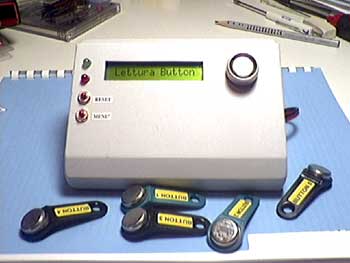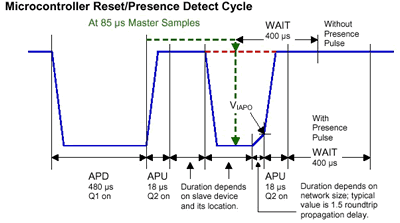
Electronic key with Pic 16F84 and Dallas iButton They are called Button Key and innovative components are made by Dallas Semiconductor, externally arise as button cells with a diameter of about 16 mm thick and 5 contain a microchip connected externally to the two electrodes, which is positive.
They are the two electrodes for feeding, through which propagate the data: in practice once fed the chip generates all the bits that characterise it in serial form, producing a series of logic levels but not distort the functioning .
This thanks to a network diode and capacitor that takes tension at rest and during high levels, isolating when the electrodes are closed since MOSFET output. Also among the leaders of the “button” is a logic that leads impulses to the control, to receive commands from the bus to two wires. The models available are different and with a broad range of functionality.
Within the iButton is a uniquely programmed ROM at the time of construction with a precise laser technique, so as to ensure maximum security of the system. To read it is necessary to feed the device and send the form of commutations along the power line, the command READ ROM: Key Button responds by issuing serial form in what it contains, from the bit whose address is less significant.
Pic16f84 Dallas iButton key

Electronic key with Pic16f84 and Dallas iButton schematic pic assembly source code
Şifre-Pass: 320volt.com
Publication date: 2008/08/29 Tags: microchip projects, microcontroller projects, pic assembly example, pic16f84 projects
PIC16F84 Metronome Circuit
Metronome electronic PIC 16F84 The draft submitted on this page and ‘found on the site http://www.htsoft.com, the software house that produces the compiler ANSI C for the PIC family of microcontrollers used in school. The management software provided as a demo for the compiler contains some errors in the values contained in the carrier digit [] that is used to decode BCD / 7 segments. In addition, the part relating to the management of energy saving should be rewritten. Rules’ management SLEEP awakening by the state following the expiry of watch-dog on PIC 16C57, initially used for this project, are different from those provided on PIC 16F84, namely: